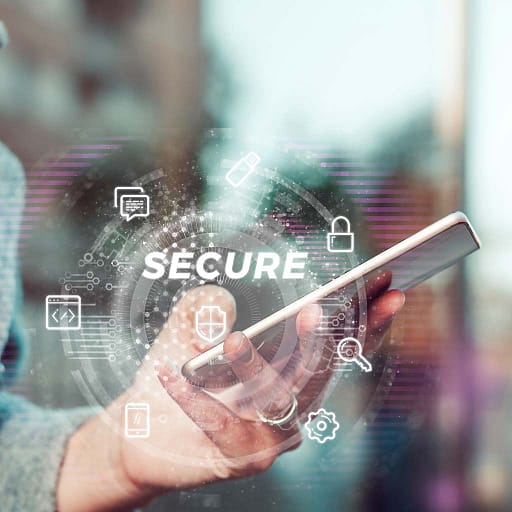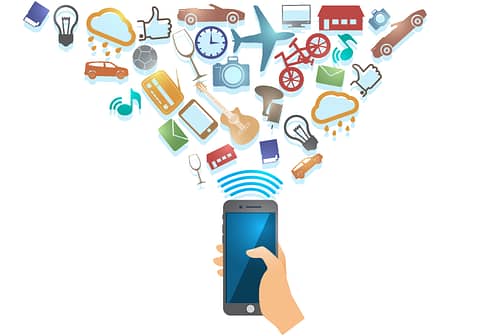
The Internet is a big place, and it is full of people who can do harm to you. This harm may come by way of you simply opening some website or you downloading something from a website or email and through many more advanced methods. So, how do you secure yourself against such harm?
The following are some of the tips:
- Secure Your Wi-Fi Network: Ensure that your home Wi-Fi network is secured with a strong password and encryption method. Never access sensitive information over public or unsecured Wi-Fi networks.
- Use Strong, Unique Passwords: Avoid using easily guessable passwords. Employ a mix of letters, numbers and special characters. It’s also important to use different passwords for different accounts to avoid multiple accounts being compromised.
- Regularly Update Your Devices and Software: Cyber criminals often exploit vulnerabilities in outdated software. Regular updates and patches can fix these vulnerabilities, making your devices more secure.
- Be Wary of Phishing Attempts: Cybercriminals often pose as trusted entities and trick people into providing sensitive data. Be skeptical of unexpected emails or messages requesting personal information.
- Install a Reliable Antivirus Software: This can protect your device from various forms of malware that could be used to compromise your information.
- Use Two-factor Authentication: Wherever possible, use two-factor authentication. This adds an extra layer of security by requiring an additional verification step before you can access your account.
- Regularly Backup Your Data: Regular backups protect your data in case your device is lost, stolen, or compromised.
- Protect Your Personal Information: Limit the amount of personal information you share online and regularly review privacy settings on social media and other accounts.
- Use Encrypted Messaging Apps: Encrypted messaging apps ensure that only the person you’re communicating with can read what’s sent, and nobody in between.
- Educate Yourself about the Latest Cybersecurity Threats: Knowledge is power when it comes to cybersecurity. Regularly updating yourself about the latest threats can help you avoid them.
- Regularly Check Your Online Accounts: Regularly check your online accounts for any unauthorized or suspicious activity. If you notice anything unusual, report it immediately.
- Be Careful When Downloading and Clicking on Links: Downloads and links can be used to install harmful software onto your device. Only download from trusted sources and avoid clicking on suspicious links.
- Use a Virtual Private Network (VPN) for extra security: A VPN encrypts your internet connection, making it harder for attackers to intercept and view your data.
- Be careful with email attachments and links: Be especially wary of email attachments and links, which can be used to spread malware.
- Limit the use of cookies and trackings: Use browser privacy settings to limit how websites can use cookies and track your online activity.
- Disable Auto-connect Options: Most devices have settings that will automatically connect to open Wi-Fi networks, disabling these can prevent unwanted connections.
- Turn Off Your Computer: It might sound simple, but turning off your computer when it’s not in use is a practical way to prevent unauthorized access.
- Manage Your Social Media Settings: Keep your private information well-managed and be vigilant about who gets to see it. Regularly check and update your privacy settings.
- Secure Your Browsing Habits: Be sure to use secure and encrypted websites, particularly when conducting transactions. Look for “https” in the URL.
- Monitor Your Children’s Online Activity: If you have children, keep an eye on their internet usage. Teach them about safe browsing and consider using parental controls.
- Don’t Use Public Wi-Fi for Transactions: If you have to use public Wi-Fi, avoid accessing personal accounts or making transactions.
- Use a Firewall: Even if your network is secure, you should still use a firewall. This an electronic barrier that blocks unauthorized access to your computers and devices.
- Be Cautious About Online Payments: Use secure payment methods and always double-check payment portals to avoid phishing scams.
- Regularly Delete Unnecessary Data: Don’t keep old, unnecessary data that you no longer need. It’s also a good practice to regularly clear your browser cookies and history.
- Use Multiple Email Accounts: Consider having separate email accounts for different purposes (personal, work, shopping) to limit the information that could be exposed if an account is compromised.
- Be Aware of Social Engineering Attacks: Cybersecurity isn’t just about protecting your devices, but also about being aware of different tactics scammers use to trick you into giving up personal information.
- Update Privacy Settings: Many apps and websites have privacy settings that you can customize to increase your security.
- Be wary of ‘free’ offers: Remember, if something online is free, you might be the product. Always be wary of free downloads, software, or services, as they often come with unwanted extras.
- Encrypt your Data: Encrypt sensitive data to add an extra layer of protection. Encryption tools can turn your emails and files into unreadable text, which can only be converted back into a readable format with a special key.
- Review Apps Permissions: Make sure you review the permissions for mobile apps before you download them. Be skeptical of apps that request access to information that isn’t necessary for their function.
- Prefer Wired Networks: Use a wired network instead of a wireless network as wireless networks are prone to sniffing attacks wherein a hacker may be able to “sniff” the data being sent wirelessly by advanced methods.
- Use Alternative Search Engines: Switch to search-engines like DuckDuckGo which do not collect or store your private information or follow you around with ads.
- Disable third-party cookies: A third-party cookie is placed on a user’s computer through a web-browser by a Web site from a domain other than the one a user is visiting. All cookies contain some data which can be communicated back and forth with the original website. Thus, cookies remember something about you.
- Always use HTTPS version on websites: A browser plugin/extension named HTTPS Everywhere will help you to automatically load HTTPS version of websites.
- Minimize the usage of browser plugins: Since they may be able to steal your data, monitor your internet traffic, and do much more serious stuff with your data, they should be minimally used.
- Use Ad-blocking plugins/extensions on web-browsers: Ads can also be used to track you across websites thus invading your privacy. Ad-blockers disable such ads.
- Disable Trackers: Use plugins like PrivacyBadger from EFF to disable trackers. Trackers, as the name suggests, are able to track you across websites, invade your privacy and thus serve you ads.
- Use a secure Domain Name System (DNS) Server: We all know that DNS handles the conversion of human-readable website names into computer-understandable IP addresses. Most of the internet enabled devices use a default set of DNS Servers provided by your service provider. Thus, your service provider will be able to see what websites you are visiting. Secure DNS Servers (e.g. Cloudflare) let you overcome this hurdle and browse in privacy.
For Wikipedia entry on Internet, click here.
For more posts on Internet, click here.
For more posts in The Cyber Cops project, click here.


